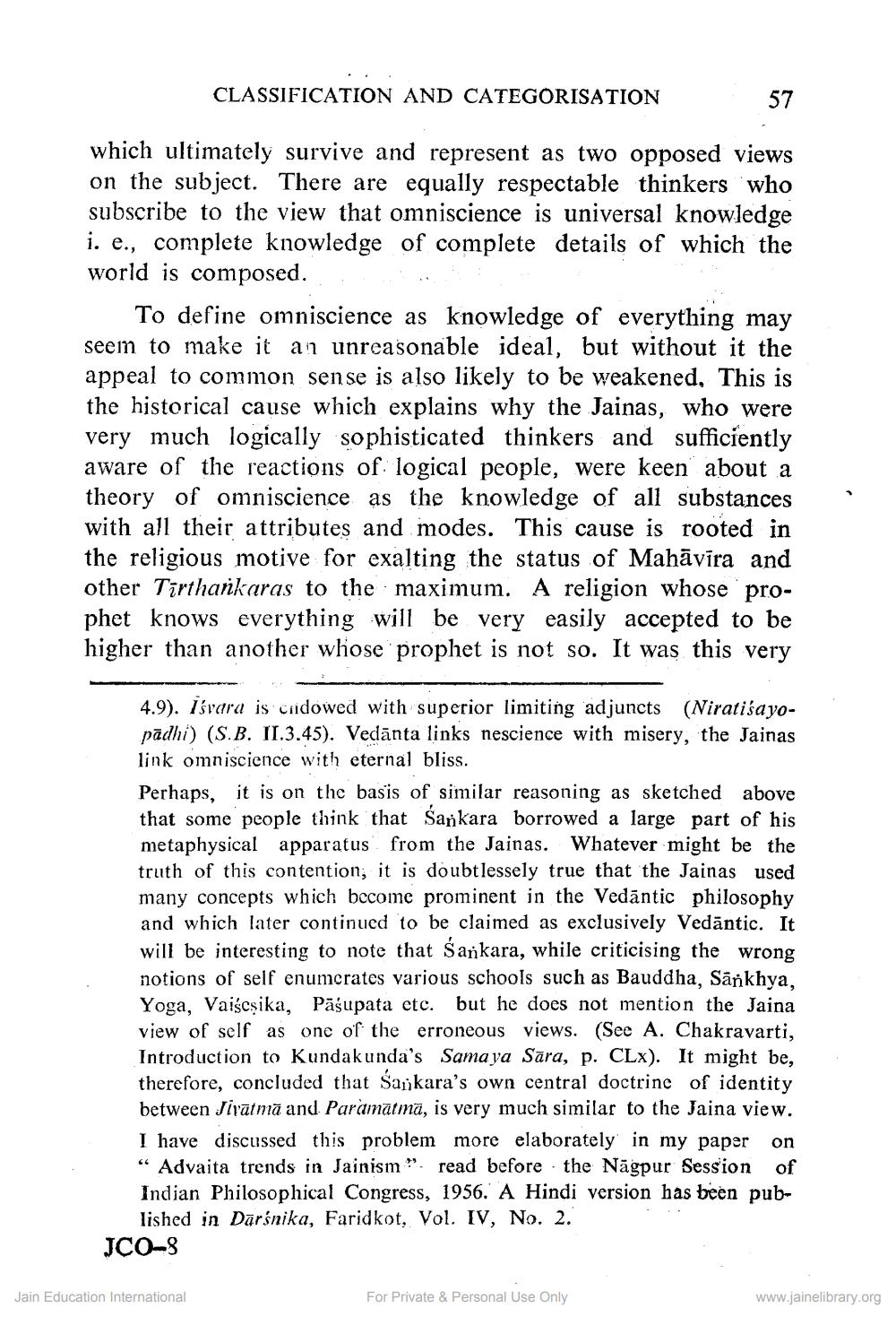________________
CLASSIFICATION AND CATEGORISATION
57
which ultimately survive and represent as two opposed views on the subject. There are equally respectable thinkers who subscribe to the view that omniscience is universal knowledge i. e., complete knowledge of complete details of which the world is composed.
To define omniscience as knowledge of everything may seem to make it an unreasonable ideal, but without it the appeal to common sense is also likely to be weakened, This is the historical cause which explains why the Jainas, who were very much logically sophisticated thinkers and sufficiently aware of the reactions of logical people, were keen about a theory of omniscience as the knowledge of all substances with all their attributes and modes. This cause is rooted in the religious motive for exalting the status of Mahāvīra and other Tirtharkaras to the maximum. A religion whose prophet knows everything will be very easily accepted to be higher than another whose prophet is not so. It was this very
4.9). Isvara is cridowed with superior limiting adjuncts (Niratisayopādhi) (S.B. II.3.45). Vedānta links nescience with misery, the Jainas link omniscience with eternal bliss. Perhaps, it is on the basis of similar reasoning as sketched above that some people think that Sankara borrowed a large part of his metaphysical apparatus from the Jainas. Whatever might be the truth of this contention, it is doubtlessely true that the Jainas used many concepts which become prominent in the Vedāntic philosophy and which later continued to be claimed as exclusively Vedāntic. It will be interesting to note that Sankara, while criticising the wrong notions of self enumcrates various schools such as Bauddha, Sankhya. Yoga, Vaiścsika, Pāšupata etc. but he does not mention the Jaina view of self as one of the erroneous views. (See A. Chakravarti, Introduction to Kundakunda's Sama ya Sara, p. CLX). It might be, therefore, concluded that Sajikara's own central doctrine of identity between Jhātmā and Paramātmā, is very much similar to the Jaina view. I have discussed this problem more elaborately in my paper on “ Advaita trends in Jainism”. read before the Nāgpur Session of Indian Philosophical Congress, 1956. A Hindi version has been pub
lished in Dārsnika, Faridkot, Vol. IV, No. 2. JCO-8
Jain Education International
For Private & Personal Use Only
www.jainelibrary.org




